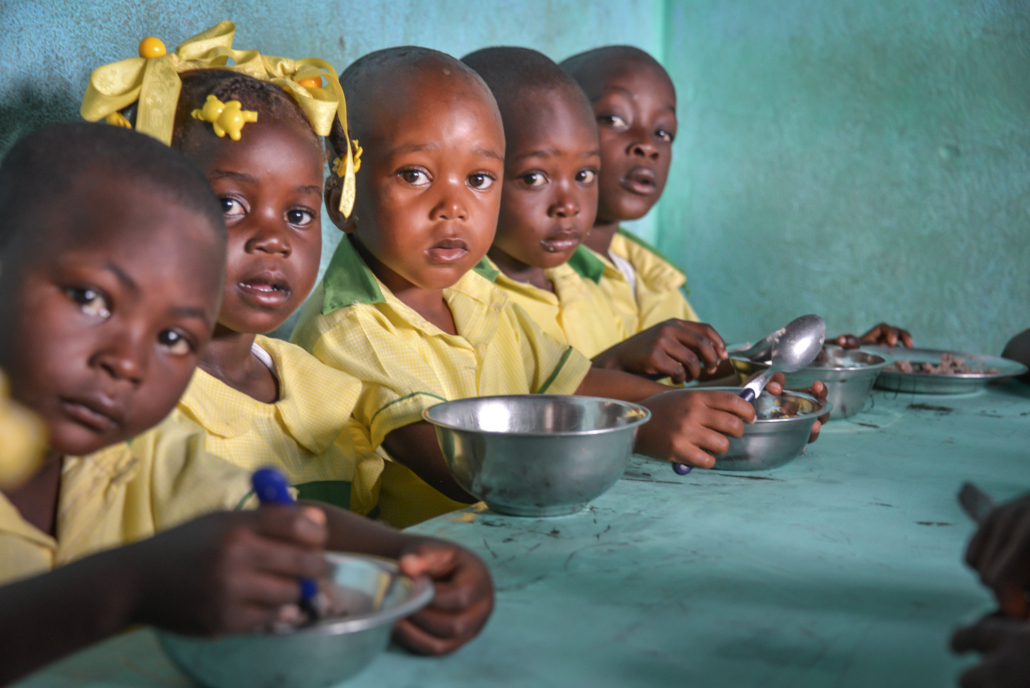Share The Meal – The App Eliminating Food Insecurity in Haiti

In an age where technology and electronic devices are at many people’s fingertips, global inequities can appear even starker — as William Gibson stated, “The future is already here, it’s just not evenly distributed.” The world’s 2 billion smartphones outnumber its hungry children by 20 to one. But apps such as Share The Meal are pioneering new ways to use the power of our smartphones to help those living in poverty and food insecurity.
Food Insecurity in Haiti
As the poorest country in Latin America and the Caribbean, Haiti’s poverty rate reached almost 60% in 2020, and it is one of the most vulnerable countries in the world with regard to food insecurity. According to the World Food Programme (WFP), almost half of the Haitian population — 4.9 million people — are underfed, and 1.8 million are at dangerous levels of food insecurity. Because of this, children are malnourished and underweight, and 66% of children under the age of 5 are anemic, affecting their early-stage development.
One of the main reasons for food insecurity in Haiti is poor agricultural performance. Although roughly two in three people in the Haitian workforce have employment within the agricultural sector, agriculture only actually accounts for 25% of Haiti’s gross domestic product.
More than 40% of Haitian land is under cultivation although only 20% of its land is even suitable for agriculture. Poor soil quality and soil erosion are among the leading problems with the land, and environmental issues such as droughts and lack of irrigation make it difficult to grow crops on land which does not have soil issues.
Haiti, therefore, relies heavily on importing food, which exposes its food market to price rises and inflation from the international market. The food insecurity situation has been desperate in recent years, but this could all change due to the development of an app eliminating food insecurity in Haiti.
Share The Meal App
The United Nations World Food Programme is helping people connect with the fight to end world hunger via a smartphone application called Share The Meal. Users of the app can support relief campaigns in poverty-stricken places all over the world at the touch of a button, whether they give one meal or one year’s worth. One meal that the WFP supplies costs only $0.80 (USD) or £0.65 (GBP), and according to WFP data, more than 150 million meals have been shared since the launch of the app in 2015.
The WFP aims to reach and support 512 million people via Share The Meal in 2023. The app allows users to choose a campaign or “goal” to donate to, which gives recipients nutrition support, agricultural support, school meals and emergency assistance depending on their needs.
Eliminating Food Insecurity in Haiti
Many people are choosing to support eliminating food insecurity in Haiti through Share The Meal’s “Improve Food Security for Families in Haiti” campaign. Haitians taking part in this poverty-fighting initiative receive cash support from the WFP donations to build protective measures for their agricultural sector, such as restoring local ecosystems to act as barriers to the climate, soil and water conservation efforts and providing local farmers with essential training on how to boost agriculture.
The WFP, with Share The Meal, is building more long-term solutions in Limbé in the Nord Department of Haiti, so people have better access to food and water, and food production is more steady and sustained. Repairing irrigation canals and planting trees such as pineapple and elephant grass are helping to reduce flooding and protect existing crops, allowing for the successful cultivation of more crops. This has promoted more sustainable ecosystems and facilitated a better standard of nutrition and is gradually eliminating food insecurity in Haiti. Funds that Share The Meal raise have also allowed for a 6,000-gallon reservoir to be built, which is providing locals with access to clean drinking water, as well as a reliable source of water to tend their crops.
The Haitian government is also working with WFP to provide school meals from local agricultural produce. This system involves the procurement of rice, fruit and vegetables from smallholder farmers, which gives them not only a more stable market for their goods but allows them to contribute to the nourishment of local children and help with eliminating food insecurity.
Overall, Share the Meal is working not only to improve food security, but it is equipping Haitians with the tools they need to strengthen their agricultural knowledge and resources, which is eliminating food insecurity in Haiti due to the shortcomings of the agricultural sector. The success of this Share The Meal campaign is a reminder of how impactful our decisions as smartphone users can be, and how technology can help in the fight against global poverty.
– Molly Wallace
Photo: Flickr
